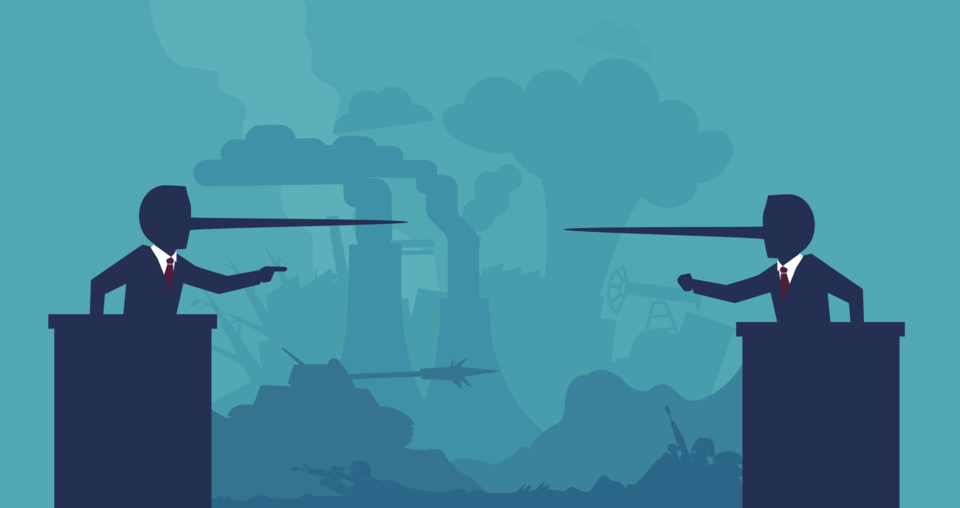You might not have even noticed it, depending on your level of political engagement and/or apathy, but Whistler, B.C., and Canada had a rare moment of respite in 2023.
We went a whole 12 months without satisfying our primal urge to elect somebody.
But with B.C.’s provincial election campaign starting to gain steam ahead of this fall’s vote, and federal and municipal elections to follow in the years ahead, the free ride is over. We are now entering a period of back-to-back-to-back election campaigns.
Brace yourselves.
But first, consider, for a moment, how many times we’ve been asked to choose our leaders in the past decade.
In 2014, B.C. held province-wide municipal elections, and in Whistler, Mayor Nancy Wilhelm-Morden won a second term.
The following year was basically one big campaign, as Justin Trudeau’s Liberals rose from the ashes to bounce Stephen Harper and the Conservative Party from office.
In 2016 we might have enjoyed a break, if not for the fevered American election campaign to the south of us.
In 2017, we double-dipped, when MLA Jordan Sturdy won a second term in B.C.’s provincial election, and Whistler’s Cathy Jewett earned a council seat in a local byelection.
The year after that brought the return of municipal elections in full, and Mayor Jack Crompton’s victory by acclamation.
In 2019, all of Canada went back to the voting booth, re-electing Trudeau’s Liberals, and in 2020, we plodded to the pandemic polls to choose B.C.’s next provincial government.
In 2021 we had yet another federal election, followed by another municipal election in 2022.
Which brings us, mercifully, to 2023—the only year in the last 10 in which we did not have some sort of election to get overly worked up about.
But for all the angst and attention we assign to election campaigns, it sure seems like a whole bunch of us simply do not care at all.
In the last three federal elections, voter turnout was 68 per cent (2015), 67 per cent (2019), and 63 per cent (2021).
That’s better than on the provincial level—voter turnout was 57 per cent in 2013, 61 per cent in 2017 and 54 per cent in the pandemic polling of 2020.
It only gets worse in Whistler, where 27 per cent of people voted in 2014; 32 per cent in 2018; and 35 per cent in 2022.
When you reflect on all our various elections over the past decade, it starts to make sense why so many are so apathetic towards politics.
We are constantly hammered over the head with the importance of voting, while our candidates largely paint by numbers and follow set political formulas, and the day-to-day lives of real people only seem to get worse.
And when we don’t see the results we want, or that our candidates promise us, we get disillusioned. We tune out.
But one might argue we’re missing the point entirely by getting so caught up in election cycles, partisan bickering and the efficacy of candidates (who are only flawed humans like the rest of us at the end of the day).
If we could only do away with the dumbed-down, team-sports mentality of our politics, and work together day to day and week to week on the issues that matter to us, we might actually make some progress.
Instead, we vote once a year—or, in the case of many of us, we don’t—and then we bitch on Facebook about how terrible everything is, never once considering that, hey, maybe I could contribute something positive to the equation, rather than hoping some politician will solve all my problems.
What a concept!
On the local level, the Resort Municipality of Whistler (RMOW) is taking a closer look at its own engagement strategies this year, with an eye to getting more people involved in the local process.
One area of focus involves more proactive youth engagement.
“This is an area where I think we should be cautious, because we don’t want to create hope in young people and then disappoint them, which creates more cynicism—which is something they actually really don’t need,” the RMOW’s general manager of community engagement and cultural services Karen Elliott said at the Feb. 20 committee of the whole meeting.
“Sometimes local governments forget that our timelines can be quite long, and youth are looking for immediate impact, so engaging them on the right projects where they can see immediate return on their investment of time and energy is more helpful.”
Elliott was referring to children, but her comments can easily be applied to us know-it-all adults, too.
Our political apathy is largely fuelled by a lack of results. We get churned around in endless election campaigns, buried in lofty promises of funding we’ll never see directly, one party switching out for the other as everything around us slowly trends downwards.
But where we miss the plot is directing all our energy—and hinging all our future hopes and dreams—on election campaigns, and which white man in a suit wins them.
What we should be focusing on is working every day to make our towns, provinces and country better in any way we can, together—not putting all our hope in some imaginary, team-sport nonsense that only serves to divide and disillusion.




